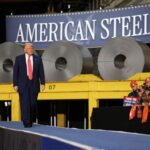
China’s mineral export policies are still mostly intact—even after its trade war “truce” with the U.S. On June 3, Beijing said it would lift some non-tariff measures targeting American companies. But the fine print? Most existing export controls will stay exactly where they are.
That’s not a minor detail. From EVs to fighter jets, global industries depend on China’s minerals. This announcement might sound like a peace offering—but it’s more like a carefully worded “not now.”

If you’re driving an electric car, using a smartphone, or depending on clean energy tech—it means prices and supply chains are still at China’s mercy. While tariffs may ease, the minerals that power the modern world? Still locked behind Beijing’s red tape.
The Seven Rare Earths (and Counting)
In April, China added seven rare earths to its export control list. These elements are used in everything from EV motors to missile systems. While the list wasn’t officially labeled “anti-U.S.,” the timing was no accident—it came right after U.S. tariffs.
Now, exporters need a license from Beijing to ship these abroad. The catch? That applies to everyone, not just the U.S. That’s how China gets global leverage without breaking a single rule.
China controls over 90% of the world’s refined rare earths—not because they own all the rocks, but because they’ve mastered the dirty business of refining them.
Other Critical Metals Still Controlled
China also holds tight on exports of tungsten, indium, bismuth, molybdenum, and tellurium—all vital for clean energy and defense.
Meanwhile, gallium, germanium, and antimony are outright banned from export to the U.S., a direct response to U.S. restrictions on China’s chip sector. Fun fact (not really): Without gallium, you don’t get LEDs or 5G tech.
A Glimpse of Future Tech Battles
In January, Beijing even proposed new controls on lithium and battery tech, signaling that it’s not done tightening the screws. China isn’t just holding the minerals—it’s guarding the tech that processes them too.
Graphite’s No Different
China is also the world’s top graphite supplier, refining over 90% of global output. As of October, even graphite exports require permits, making battery makers worldwide even more anxious.
Despite the handshake, China’s mineral export controls remain a national security weapon. The U.S. may celebrate a symbolic win—but real power still lies underground… and under Beijing’s thumb.
Or as one analyst joked: “The war paused, but China’s got the minerals—and they’re not sharing.”
Also Read Trump’s Tariff Hammer Drops – Steel & Aluminum Prices Set to Skyrocket!












